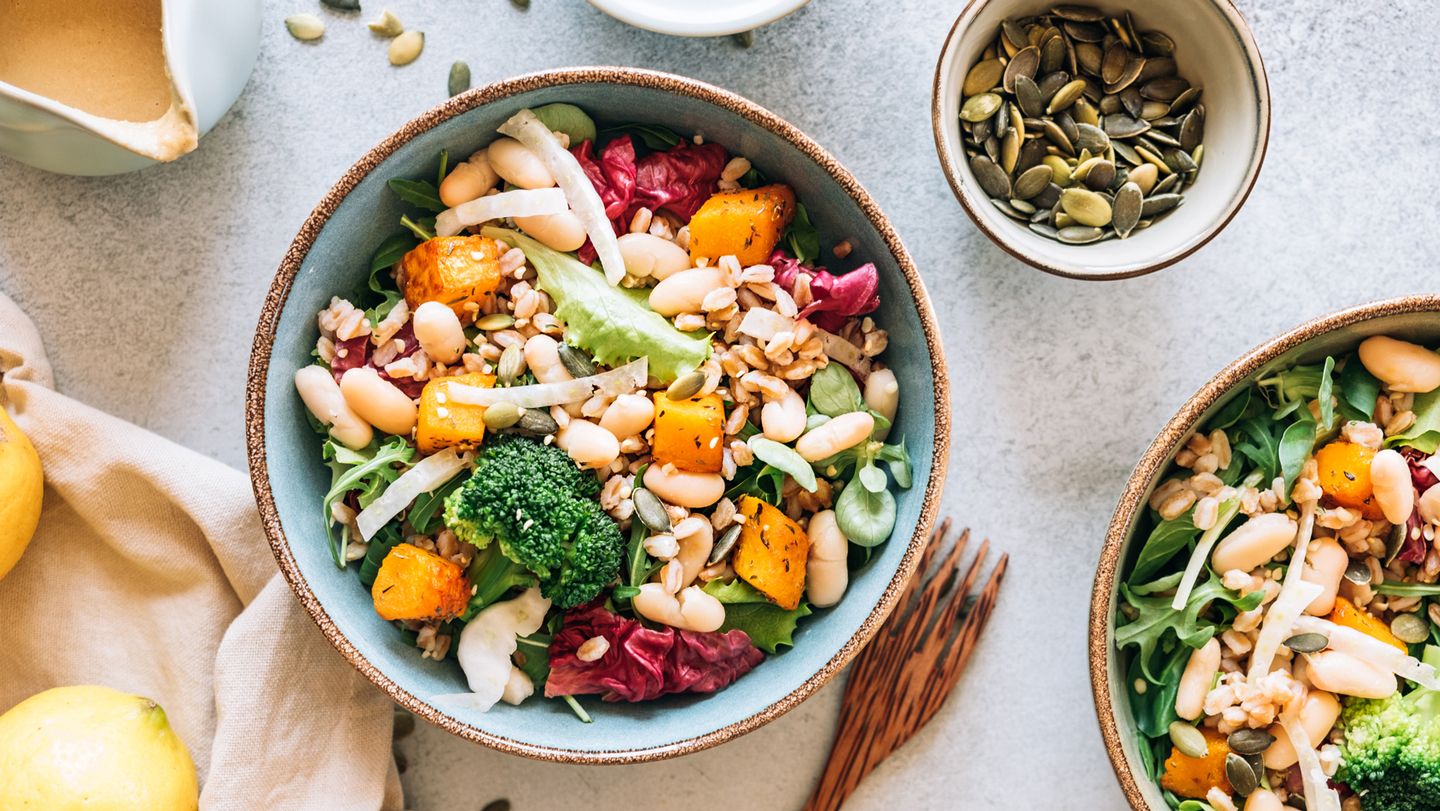Our large intestine houses trillions of microorganisms, including bacteria, viruses, fungi, and archaea, collectively referred to as the “gut microbiome.”
Studies show that one of the most effective ways to shape our gut microbiome is through our diet. “The diets of many Americans contain high amounts of processed foods that are low in fiber and high in saturated fats and refined sugars. Consuming these kinds of foods, also known as the Western diet, can affect the gut microbiome and your health,” says Jasmohan Bajaj, MD, a gastroenterologist at the Richmond Veterans Affairs (VA) Medical Center in Virginia.
But better food choices can make a difference fast. Changes in the makeup of the gut microbiome can be observed in as little as 24 hours after making dietary changes.
While the research is continuing to unfold, it’s clear that certain foods and dietary practices promote a healthier, more resilient gut microbiome, while others trigger inflammation. Here are five simple, actionable diet changes you can try to potentially improve your gut microbiome starting today.
1. Add Prebiotic-Rich Foods to Every Meal
In short, probiotics are the beneficial gut bacteria themselves, found in both fermented foods and supplements, whereas prebiotics are food for probiotics. More specifically, prebiotics are substances that selectively feed our healthy gut-associated microbes when we consume them.
It’s important to populate and support a healthy balance of these healthy microbes in our gut, but we must also feed them properly with plenty of prebiotic-rich foods, so they stick around and provide us with health benefits (and are not crowded out by the more disease associated microbes).
“Adding prebiotic-rich foods to one’s diet has been shown to be one of the most effective ways of positively altering the microbiome,” says Michael Schopis, MD, a gastroenterologist in New York City.
- Almonds
- Artichokes
- Asparagus
- Bananas
- Barley
- Beans
- Eggplant
- Honey
- Oats
- Peas
- Raw garlic
- Raw or cooked onion
- Soy foods, such as tofu or tempeh
- Whole grain wheat
2. Embrace Fermented Foods
Fermented foods are those produced or transformed with the help of microorganisms, such as bacteria and yeast. Fermented foods act as a natural probiotic supplement, populating the gut with beneficial microbes when we consume them.
One study found that consuming a diet high in fermented foods increases the diversity of microbes in the gut, and lowers markers of inflammation.
Just a few of the many fermented food options to choose from are:
Whether you incorporate kefir into a smoothie, snack on Greek yogurt, add sauerkraut to a sandwich, or whip up a tasty salad dressing with miso paste, your gut will surely thank you.
3. Include a Wide Variety of Plants in Your Diet
Just as a healthy ecosystem is rich in plant diversity, a healthy and resilient gut microbiome is one that is diverse, encompassing a variety of microorganisms with unique roles. The greater the microbial diversity in the gut, the greater the health benefits.
Think of it this way: We need doctors, but if everyone were a doctor, there would be no teachers to educate, no police officers to maintain order and safety, no engineers to develop essential technologies, nor farmers to grow food. We need each profession to exist in order to have a well-functioning society, just as we need a variety of gut microbes to have a well-functioning gut microbiome.
One of the best ways to increase the diversity of your gut microbiome is to eat a wide variety of whole plant foods. “Different microbes thrive on different foods, so more variety helps support a more diverse, resilient microbiome,” says Alyssa Simpson, RDN, a dietitian in Phoenix, Arizona.
Try adding one to two new plant varieties to your grocery shopping cart each week, and visiting your local farmer’s market to discover unique varieties of seasonal produce you may not have tried before. Additionally, cooking with fresh herbs and adding them to salads, starting your day with a plant-filled smoothie, snacking on fruit with nuts and seeds, and incorporating plant-based proteins into your meals such as beans and legumes, are all tasty ways to promote a diverse gut microbiome.
4. Toss the Artificial Sweeteners
Artificial sweeteners may appear healthier than regular sugar since they’re calorie-free, but some research indicates that they may actually wreak havoc on our healthy gut bacteria.
For example, one review suggests that artificial sweetener intake correlates with gut microbiome changes linked to insulin resistance, one of the main contributors to the development of type 2 diabetes.
“Artificial sweeteners have been implicated as a negative influence on our microbiome and may play a role in future colonic disease,” adds Dr. Schopis, who notes more studies are needed to make firm recommendations around these sweeteners.
Rather than regularly consuming artificial sweeteners, it’s likely healthier to consume real sugar in moderation. To avoid artificial sweeteners, look out for saccharin, sucralose, aspartame, acesulfame potassium, neotame, and advantame on ingredient labels of foods, beverages, and supplements. These are the artificial sweeteners currently approved by the U.S. Food and Drug Administration (FDA).
5. Steer Clear of Dietary Emulsifiers
Dietary emulsifiers are food additives that improve the texture and consistency of various processed foods by holding food particles together. They’re added to foods like salad dressing to prevent separation of oil and water, ice cream, and other desserts to improve their texture and mouthfeel, and milk alternatives to prevent their components from separating out.
While certain foods naturally have emulsification properties, like egg yolks, emulsifiers can also be chemically produced or extracted. Experts speculate that, unlike foods with natural emulsification properties, chemically processed emulsifiers may have detrimental effects on our gut microbiota and as a result, promote intestinal inflammation.
Chemically processed emulsifiers are often found in ultra-processed foods, foods that undergo heavy processing, such as packaged snacks, packaged pastries, and sweetened breakfast cereals. “Ultra-processed foods have increasingly been connected to many gastrointestinal health conditions including early onset colorectal cancer and inflammatory bowel disease,” says Schopis.
Maltodextrin, carrageenan, polysorbate-80, and carboxymethylcellulose are examples of common chemically processed dietary emulsifiers to look out for on ingredient labels. Since these additives are only found in packaged, processed foods, centering your diet around whole, minimally processed foods is an easy way to avoid them.
The Takeaway
- Dietary changes are a quick way to boost the health of your gut microbiome, the ecosystem of microbes in your gut that affect your overall health.
- Incorporating more whole, prebiotic-rich, fermented, and plant foods into your diet can benefit your gut microbiome.
- Limiting or avoiding artificial sweeteners and emulsifiers can help improve gut health, too.
Additional reporting by Abby McCoy.




